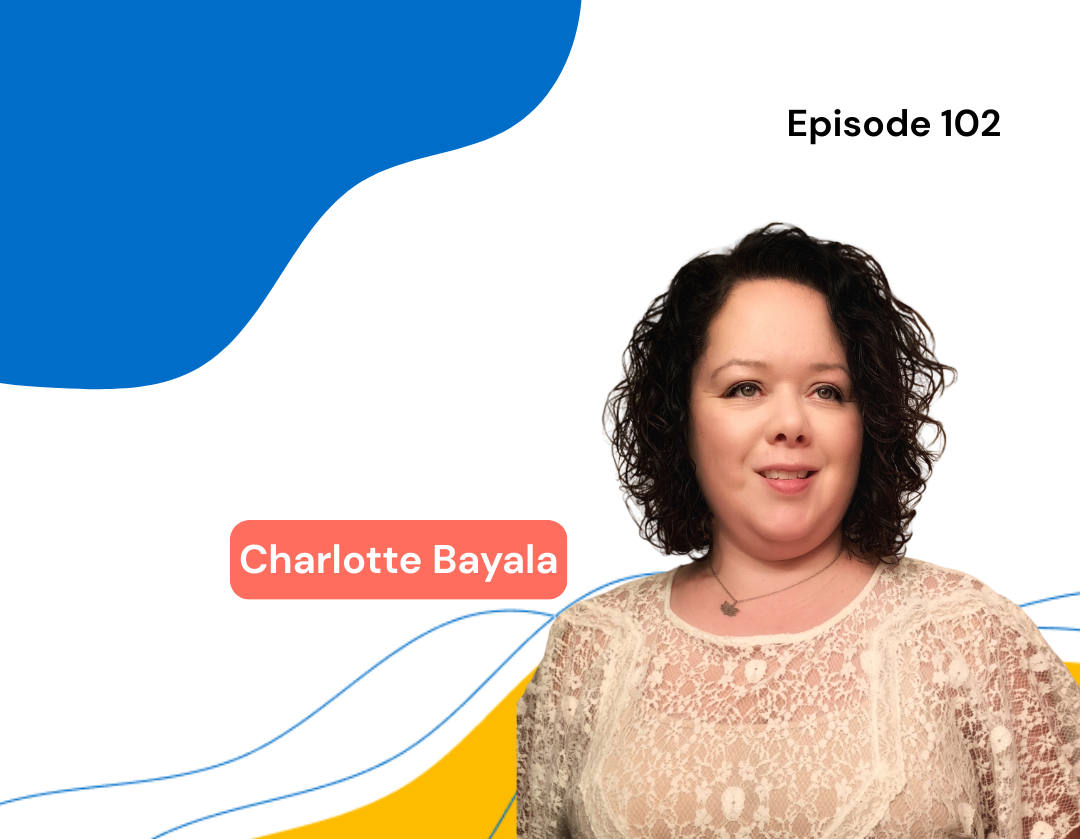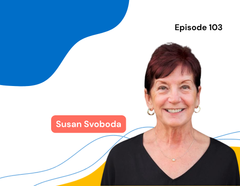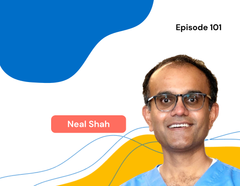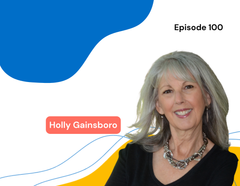When Charlotte’s husband was diagnosed with thyroid cancer, she didn’t get asked if she wanted to be a caregiver. One day she was teaching yoga, walking her daughter to first grade, and living a carefree family life. The next, she was in survival mode: researching treatments, advocating at every oncology visit, and setting boundaries with friends and family so her husband didn’t have to comfort others about his diagnosis.
“There was no moment where someone tapped me in,” Charlotte recalls. “I wasn’t asked to become a caregiver—it just happened. And suddenly, my entire life had changed without my consent.”
In this episode of The Patient From Hell, host Samira Daswani speaks with Charlotte about the hard truths of caregiving: the lack of training, the invisible burdens, and the mental toll of living in constant protective mode. Drawing on her background in Taekwondo and yoga, Charlotte has built a philosophy of resilience—one rooted in breath, discipline, and the ability to respond instead of react, even in the most chaotic moments.
Caregiving Without Agency
Unlike a martial arts match, caregiving doesn’t begin with choice or consent. In Taekwondo, you bow, agree to spar, and have the option to step back. In caregiving, Charlotte explains, you are thrown into the ring with no training and no chance to say no.
“You’re expected to perform immediately—coordinate appointments, monitor treatments, advocate with doctors—without any preparation,” she says. “It’s like being a white belt fighting a black belt, with no tools and no warning.”
Survival Mode Meets Protective Mode
For Charlotte, caregiving became a form of constant vigilance:
- Researching every possible treatment option.
- Learning how to strip surgical drains and manage radioactive iodine isolation at home.
- Advocating in oncology visits when doctors used jargon her husband couldn’t follow.
- Acting as “gatekeeper,” making sure visitors didn’t unload their grief on her husband.
“It felt like our house was under attack,” she says. “My husband’s role was to survive. My role was to protect—his health, his spirit, and our family.”
From White Belt to Coach
Over twelve years, Charlotte transformed from untrained caregiver to strategist. But the learning curve was steep, and every skill came through trial and error.
She recalls the shock of seeing her husband’s wounds after surgery: “I wasn’t trained to look at that. I wasn’t ready. But I had to respond anyway.”
Over time, Charlotte developed systems: note-taking, anticipating complications, knowing which words to use in ERs to get doctors to listen, and documenting everything so her husband’s care never fell through the cracks.
Still, she stresses, there is no formal pathway: “Caregivers learn to coach, but no one gives us a manual. We build it ourselves.”
Forgetting—and Reclaiming—Self-Care
Ironically, as a yoga and meditation teacher, Charlotte spent years teaching others how to cope with stress while abandoning her own practices.
“When my doctor told me to try meditation, I was furious,” she laughs. “That’s what I taught for a living. But caregiving had knocked me so far sideways that I forgot my own tools.”
That wake-up call pushed her to rebuild her personal practice—and she now encourages other caregivers to do the same, even in micro-moments. “If I, someone with all the training, could forget to take care of myself, what about caregivers who don’t have those tools?”
Practical Lessons for Caregivers
Charlotte’s journey offers insights for anyone caring for a loved one:
- Ask questions—even the “dumb” ones. If you don’t understand, your loved one probably doesn’t either.
- Create systems. Document symptoms, meds, and thresholds so decisions don’t happen in panic.
- Gatekeep visitors. Protect your loved one’s emotional energy by setting clear boundaries.
- Recognize survival vs. protection. Both roles matter, and both can take a toll.
- Practice micro-care. Even a few deep breaths can reset your body in a crisis.
- Expect to re-learn. New treatments can feel like a new diagnosis; return to your basics.
About the Guest
Charlotte is a yoga and meditation teacher with a background in Taekwondo and more than a decade of lived caregiving experience. For over twelve years, she has been the primary caregiver and advocate for her husband as he continues to live with thyroid cancer. Today, she works to support other caregivers by sharing practical strategies for resilience, mindfulness, and advocacy—tools she has had to refine through trial, error, and necessity.



